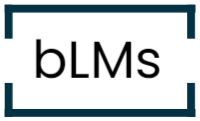BLMS is a cloud-based Learning Management System (LMS) that provides a platform for creating and delivering online courses suitable for corporates and higher institutions of learning. BLMS is built on Laravel and comes with all the advantages offered by the world’s leading framework. BLMS’s main advantage is that it has powerful administrative features, making it easy for administrators to deliver learning and manage the system. BLMS can be downscaled or upscaled to meet the needs of the organization.
BLMS is an LMS system with powerful course management, user management and system management features to enable administrators to deliver blended learning, distance education, flipped classrooms and other online learning projects in schools, universities, workplaces and other sectors.
Course Management
BLMS’s course management feature allows administrators to create, organize, and manage courses, including the course materials, structure, and calendar.
Course Structure
This feature allows instructors to create a logical structure for their course, including modules, units, and lessons, and to specify the order in which students should access the materials.
Learning Modules
Administrators can use BLMs to create and organize course materials, including assessments and assignments, polls & surveys, documents (PDF, OpenOffice, and Microsoft Word), video, images, audio, external links and website embeds, interactive content such as SCORM, CMI5, xAPI and h5P.
The learning modules below are available in BLMS.
The learning modules below have not been fully integrated with the system but will be in the next two months.
Grading and Assessment:
This feature allows administrators to create and manage assessments and assignments including scoring and feedback configuration. BLMS assessments make use of the following question types:
The question types below are read-only question types that are used to pass instructions to students.
Additional Course Fields
Additional information or data that can be added to a course beyond the default fields provided by the LMS. These additional fields can be used to store and display custom information about a course that is specific to an organization or institution as determined by the administrator.
Course Calendar:
This feature allows instructors to schedule events and activities related to the course, such as lectures, quizzes, and assignments, and to display them on a calendar. Users can likewise create custom events specific to their needs.
Collaboration Tools:
This feature allows instructors to enable tools such as forums, instant chat, and chat rooms to facilitate collaboration among students and instructors.
Certificate Management
Certificates can be assigned on attendance or completion of a course. This includes the ability to customize the look and content of the certificate, including the layout, font, and logos and to add custom content to it.
Feedback Management
this feature allows administrators to communicate through notes, announcements, and emails. Users can likewise create custom notes within the course.
Reporting and Analytics
This feature allows administrators to generate reports on student progress and engagement, and to analyze data on course performance and effectiveness.
Document Management
this feature allows for the uploading of additional documents that can be accessed by users in the course dashboard. Users can likewise upload additional documents in each course document section for personal.
Mobile Access
This feature allows students to access course materials and activities from their smartphones and tablets.


